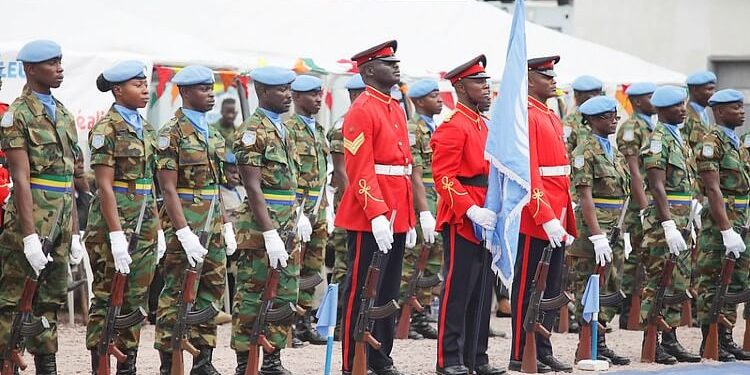A pivotal moment has emerged in global diplomacy as the UK advocates for permanent African representation on the UN Security Council.
Highlighting the crucial role African nations play in international peace and security, the UK’s Minister for Africa and the UN, Lord Collins, has underscored the urgency of reforming the Council to include Africa as a permanent member.
The Need for Reform
The current structure of the United Nations Security Council (UNSC), established in 1945, fails to reflect the modern geopolitical landscape.
Africa, with its 54 member states, remains without permanent representation, despite being central to many of the Council’s key initiatives.
As conflicts and crises increasingly affect African nations, their absence from permanent membership hinders the Council’s effectiveness in addressing these challenges.
UK’s Position on African Inclusion
Lord Collins of Highbury, speaking at a recent UNSC meeting, emphasized the UK’s commitment to working with African partners to strengthen multilateral institutions.
He noted,
“The challenges we face today do not respect borders, and they are sorely testing the international order the United Nations has championed.”
His remarks highlighted the need for African voices to be permanently integrated into the decision-making processes that directly impact their continent.
African Contributions to Global Peace and Security
African nations have consistently contributed to global peace efforts, often spearheading peacekeeping missions and conflict resolution initiatives across the continent.
Countries like Nigeria, South Africa, and Kenya have played pivotal roles in mediating disputes and fostering stability in regions affected by turmoil.
Their experience and expertise make a strong case for their inclusion as permanent members of the UNSC.
African Contributions
- Nigeria: Led peacekeeping missions in Sudan and Somalia between 2010-2012.
- South Africa: Mediated peace talks in the Central African Republic during 2013-2015.
- Kenya: Deployed troops to support stability in South Sudan from 2016-2018.
- Ethiopia: Played a key role in the African Union’s peacekeeping forces during 2019-2021.
- Ghana: Contributed to UN peace missions in Mali from 2022-2024.
A More Inclusive and Effective Council
The UK’s call for reform aligns with broader international efforts to democratize the UNSC.
By expanding its permanent membership to include African nations, the Council would not only become more representative but also more effective in addressing global challenges.
This reform is seen as a critical step toward ensuring that the Council’s decisions are more reflective of the diverse world it aims to serve.
African Nations’ Contributions to Peacekeeping (2010-2024)
Year |
Country |
Major Peacekeeping Contribution |
|---|---|---|
| 2010-2012 | Nigeria | Led missions in Sudan and Somalia |
| 2013-2015 | South Africa | Mediated peace talks in the Central African Republic |
| 2016-2018 | Kenya | Deployed troops to support stability in South Sudan |
| 2019-2021 | Ethiopia | Key player in the African Union’s peacekeeping forces |
| 2022-2024 | Ghana | Contributed to UN peace missions in Mali |
The Road Ahead
Achieving permanent African representation on the UNSC is not without challenges. The reform process requires consensus among current permanent members, who hold significant power in the decision-making process.
However, the UK remains determined to advocate for this essential change, recognizing that Africa’s inclusion is vital for the future stability and security of the international community.
International Support and Obstacles
- UK and Allies: Strong support for Africa’s permanent inclusion.
- Complex Reform Process: Requires a two-thirds majority in the UN General Assembly.
- Challenges: Ratification needed by all current permanent members.
To Summarize
The push for permanent African representation on the UN Security Council marks a significant step toward a more inclusive and effective global governance structure.
As Lord Collins aptly stated,
“We must find truly global solutions to these problems,”
a sentiment that resonates strongly in the call for reform.
The UK’s steadfast support underscores the importance of ensuring that Africa’s voice is not only heard but also given the influence it deserves in the highest echelons of international decision-making.
Sources: THX News, Foreign, Commonwealth and Development Office & Lord Collins of Highbury.








